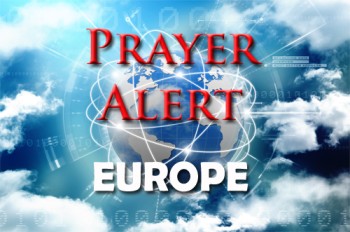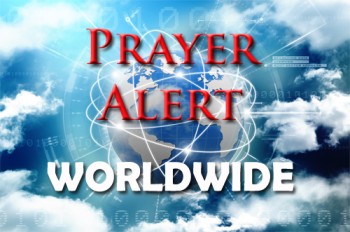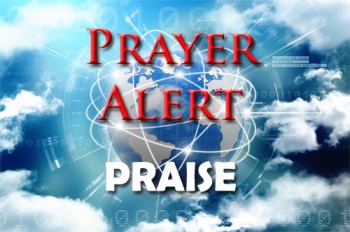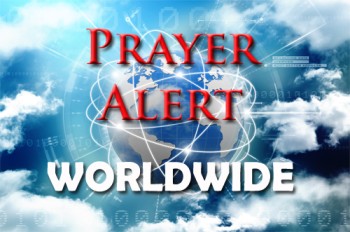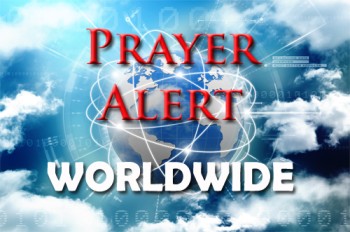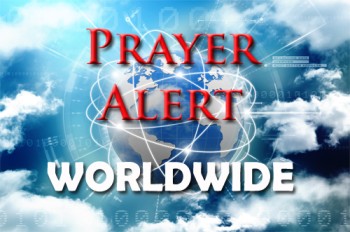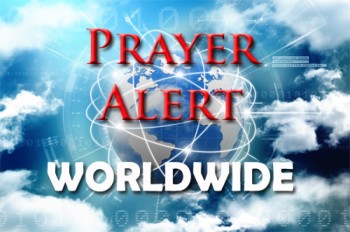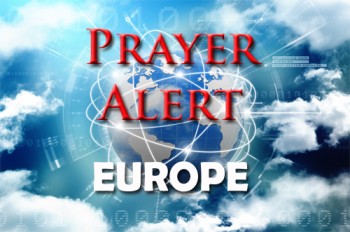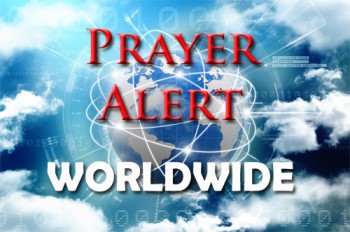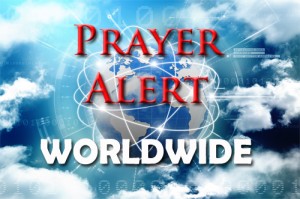Displaying items by tag: Morocco
Spain / Portugal / Morocco: severe storms contrast with extreme cold in north and east Europe
Severe storms across southern Europe and north-west Africa have forced mass evacuations and widespread emergency responses. Storm Leonardo brought intense flooding to Spain, Portugal and Morocco, with rivers reaching record levels and transport disrupted. In parts of southern Spain thousands fled homes, while northern Morocco evacuated over 140,000 residents as dams filled and rainfall continued. Mountain areas recorded extraordinary totals in little more than a day. A second system, Storm Marta, though less intense, added further rain, strong winds and coastal waves. This contrasts sharply with northern and eastern Europe, where persistent high pressure caused extreme cold and record low temperatures. Meteorologists say the unusual pattern has lasted weeks, steering storms south while trapping cold air elsewhere. Although the rainfall has eased drought conditions in Morocco, communities now face recovery, displacement and rebuilding after damage and loss. Update: Portugal’s interior minister has resigned after criticism of her handling of the storms. See
Morocco: response to severe winter emergency
Authorities in Morocco are confronting a severe winter emergency as freezing temperatures, heavy rainfall, snowfall, and flash floods impact large swathes of the country. In response, they have launched a nationwide relief operation covering 28 provinces, aiming to assist around 73,000 vulnerable households with food supplies, blankets, and essential aid. Red weather alerts warn of as much as 80 cm of snow in the High Atlas mountains, while orange alerts signal intense rainfall across central and northern regions. The extreme conditions have already proved deadly: flash floods in the coastal city of Safi killed at least 37 people, damaged homes, and swept away vehicles. To mitigate further harm, the government has mobilised road clearance teams, emergency monitoring centres, and provincial vigilance committees to maintain access to remote and high-altitude areas: residents are being urged to remina cautious, especially when travelling. The relief efforts reflect Morocco’s broader strategy to protect vulnerable communities and mitigate the impacts of what authorities describe as unusually severe winter weather.
Omar found the truth after watching forbidden video
After Omar, from Morocco, risked watching a video entitled 'The Koran is NOT the Word of God', he found himself questioning the authenticity of Islam. After weeks of research, he became convinced the Bible was the true Word of God and embraced Christianity. He shared the videos with his coworker Ali, and both men eventually accepted Jesus into their hearts. Though his newfound faith brought joy, it also led to hardship: his brother-in-law, an extremist, separated him from his wife, Fatima, labelling him an infidel. After a year, Fatima, disobeying her brother, returned to Omar. However, she remained unconvinced about Christianity. When she needed surgery, it was the local church that cared for her, not her friends. Over time, seeing the love of Christ in action led her to accept Jesus. Christianity in Morocco, despite societal pressures, continues to grow as more people seek truth in Christ amidst disillusionment with Islam and its institutions.
Morocco: prayer response
SAT-7 Christian broadcasters are sharing prayers across the Middle East for Morocco, after a major earthquake killed over 2,900 people, with many thousands more injured, homeless, and grieving. They seek to bring the Lord’s comfort through TV programmes and digital media across the High Atlas mountain region. Rescue efforts are complicated. Damaged homes and infrastructure plus aftershocks have left survivors outdoors. Ask God to reassure the fearful who don’t know when or where they can sleep safely. Pray for God’s peace to cover those who are trying to make contact with missing relatives and friends across the country. Since 11 September, SAT-7 has used its different channels and platforms to call for and share prayers for the Moroccan people from Christians in neighbouring Algeria and Turkey. SAT-7’s content advisor said, ‘Asking for prayers in support of the Moroccan people is an important early response. People need comfort, care and connection with others during times of disaster. People need to know that others care and feel for them.’
Morocco: aid response
After the earthquake rattled through Morocco, Help The Persecuted’s field ministry team mobilised immediately into the mountains to meet the overwhelming need. What they found shocked them. Most homes have been flattened to rubble. Roads are completely destroyed, cutting the most remote areas off from any sort of aid. Those fortunate enough to have survived are completely traumatised and in desperate need of food, water, intensive medical care, and shelter. The team distributed funds and basic relief supplies to those who had lost everything, praying with each recipient. They aided in rescuing some from the rubble. They are making lists of key supplies, hoping to provide survivors in the most remote areas with all they need to survive the coming days and weeks. The devastation goes much deeper than tangible need. These people watched their family members die before their eyes and could do absolutely nothing. Missionaries listened to their sufferings and prayed with them, but they will need so much more care.
Morocco: pray for the mustard seed church
A North African country of 37 million people, Morocco has enjoyed a degree of stability and peace. The King takes the lead in politics and religious affairs. He is attempting to spread wealth beyond the main cities, and to open a limited space for political discussion. Positive change is slowed by corruption, political repression, and unemployment. Young people and rural dwellers show their frustration in sporadic protests. Morocco is 99% Muslim. Christians number a couple of thousand, each one born into a hostile environment. Few Moroccans have heard the gospel; many have come across slanderous reports about the Church. Christian workers have been expelled. It is hard to gather Christians together for fellowship and discipleship. Pray for the King, and for fresh hope for the people of Morocco. Praise God for Morocco’s Church, for expatriate believers, and for the internet and satellite TV which are lifelines for Moroccan Christians and seekers.
Global: Probes into migrant deaths
Five human rights organisations want Spain and Morocco to investigate the deaths of 18 migrants, the injuries of 76 others, and the actions of 140 Moroccan security officers when migrants attempted to scale a fence separating the two countries. Spain's Commission for Refugees decried ‘indiscriminate use of violence to manage migration and control borders had prevented people who were eligible for international protection from reaching Spanish soil’. Meanwhile, UNHCR is asking both Africa and Europe to enhance legal frameworks and operational capacities at land and sea borders and urban centres plus youth programming and local community-based development as alternatives to dangerous journeys. In America the bodies of 51 dead migrants were discovered inside a lorry in San Antonio. An official said they found ‘stacks of bodies and no water in the truck. Sixteen survivors are in hospital with heat stroke and exhaustion, including four minors. No children were among the dead. See
Spain: migrants swim from Morocco
Thousands of migrants have swum into the Spanish enclave of Ceuta after border controls were relaxed in Morocco. In 24 hours, 6,000 people had paddled in inflatable boats, swum with rubber rings, or walked through the shallows at low tide. 1,500 were thought to be teenagers. Spanish troops were deployed to Ceuta to patrol the border. Moroccan migrants have crossed land and sea borders to Spain by the hundreds for weeks. Adults were transferred to a football stadium and returned to Morocco, minors went to an industrial building. Spanish / Moroccan tensions are high after the leader of the Polisario Front, Brahim Ghali, was admitted to a Spanish hospital without informing Morocco. The Polisario Front fights for the independence of Western Sahara and contests all Morocco's claims. Many believe lax Moroccan border control, facilitating easy access to Spain, was in retaliation for Spain treating Brahim Ghali.
Persecuted Christians amid pandemic
From Morocco to Iraq there are various forms of lockdowns, strains on hospitals, food shortages, even martial law. These strains put more pressure on already-stressed communities. The potential spread of the disease among refugees and displaced populations could be catastrophic. Many are persecuted believers with no financial safety net and poor medical infrastructures. For war-torn Syria, the pandemic has taken the situation from bad to worse. ‘We are free from the armed militia in Aleppo, but prices here are soaring’, said Kareem, ‘We have all signed up to receive bread from the government, and the needs are overwhelming.’ In Turkey, many are Iranian converts from Islam who fled Iran after being imprisoned or tortured for their faith. Turkish locals now blame them for the spread of coronavirus. The government has cut off all assistance, and many Christians have lost their employment. The Bible advises to go to the Lord with trials and problems; this virus is a serious problem.
Morocco: hundreds of protesters still in prison
Activists in a Casablanca prison keep having their court cases postponed. They are affiliated to Hirak, a protest movement that emerged in October 2016 after a fish vendor was crushed to death by a truck as he tried to retrieve fish that authorities had confiscated. See Since that article, however, the government has acknowledged Hirak’s grievances - better infrastructure, jobs and health-care - but hundreds of protesters remain behind bars, 54 of them accused of threatening the internal security of the state. Authorities are also trying seven reporters who covered the protests and commented on religion and religious freedom. The official response to Hirak's demands was to propose building roads, hospitals, and a cancer treatment centre (Moroccans have a high incidence of the disease). When the national human rights council reported human rights violations and torture, the justice minister announced an investigation, but no follow-up has been made public.
